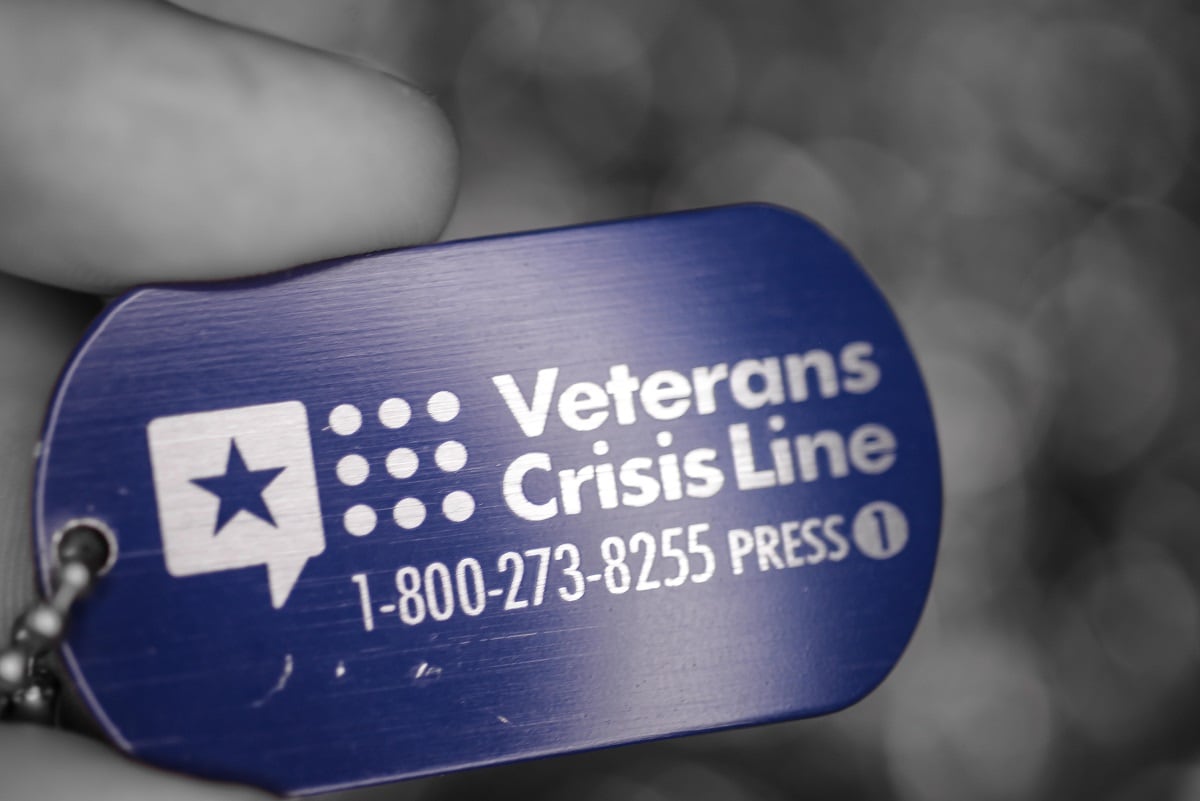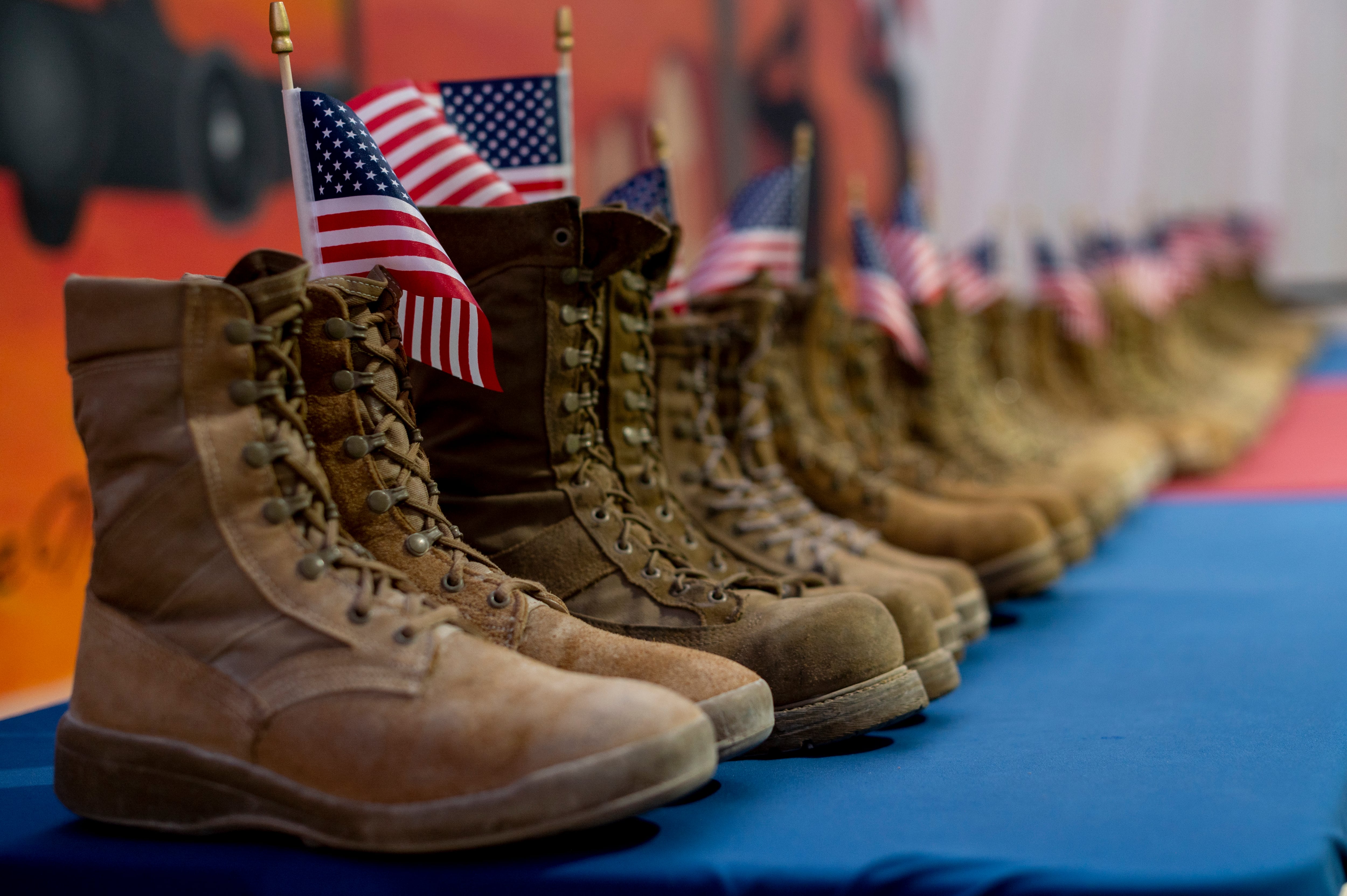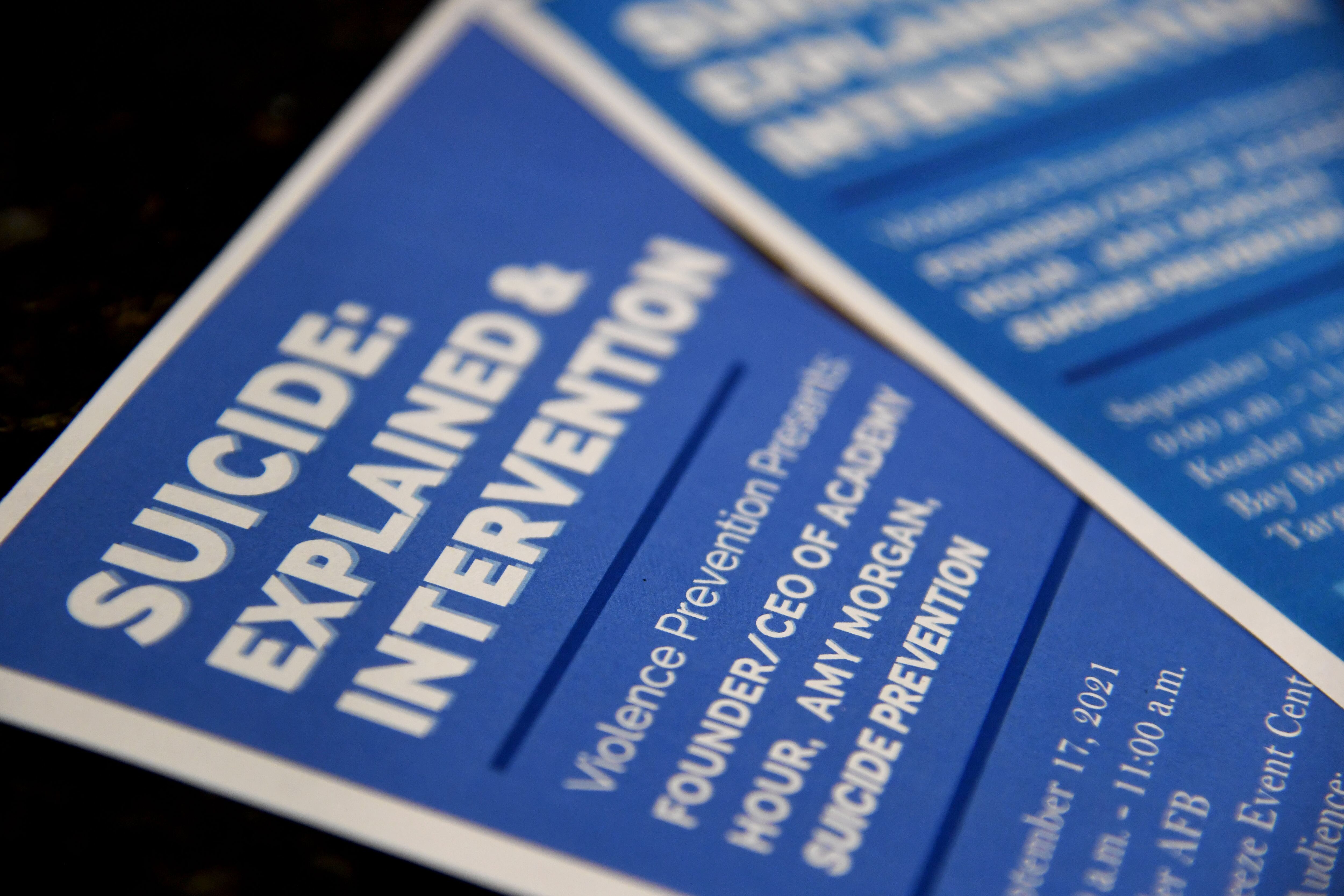For Mayank Mishra, preventing veteran suicides starts with improving internet access.
“Instead of just saying, ‘Here’s an app that can help,’ we have to make sure the digital infrastructure is there,” said Mishra, co-founder of Televeda, an Arizona-based firm focused on ways to prevent social isolation in vulnerable communities “Being able to access care is just as important as the mental health care itself.”
Televeda’s Project Hózhó, which is focused on bringing broadband services and culturally relevant mental health support to Native American reservations in the southwest United States, was recognized Thursday as one of two first-place winners of the Department of Veterans’ Affairs’ Mission Daybreak challenge.
The prize brings with it $3 million in funding for the project’s suicide prevention efforts, money that Mishra said will be immediately invested into infrastructure and mental health assistance work already underway.
“With this, we expect to see results by the end of the year,” he said.
RELATED

Despite years of focus on the issue, reducing suicides among veterans has been an elusive goal for policy planners.
Last fall, VA officials announced the number of veterans suicides in 2020 (the most recent year for which data is available) dropped to just below 17 deaths a day, the lowest rate since 2006.
That still translated into more than 6,100 preventable deaths that year.
The Mission Daybreak initiative was launched last May as a way to develop new suicide prevention strategies through a public competition. The department awarded $20 million in prizes to 40 firms in recent months, including payouts of $1 million or more to five exceptional projects recognized this week.
“Veterans suicide prevention will require a public health approach, and everyone has a role to play,” said Dr. Matthew Miller, executive director for suicide prevention at VA.
“[These prize winners] are well-positioned to be deployed across a variety of settings and communities, and so doing, they’ll enforce everyone’s role in suicide prevention.”
The nonprofit group Stop Soldier Suicide claimed the other first-place prize for its Black Box Project, which analyzes data from digital devices of veterans who died by suicide to “develop machine learning models that can identify never-before-known risk patterns.”
That includes things like seeing shifts in sleeping patterns, use of more aggressive language in text messages, and other disruptions in normal habits. The goal is to find indicators of when veterans may be facing increased stress and may be open to intervention or support services.
Chris Ford, CEO of the group, calls the work “suicide intelligence” and said the $3 million prize will cover a significant portion of the $10 million project.
“We’ve developed trust and empathy with these families, so they share things with us that they might not with VA,” he said. “So, VA has taken a step away from needing ownership and instead aimed for reaching the common good here in the fastest way.”
VA officials said they will provide some support with the award-winning projects, but only if such a move makes sense for the department and the outside groups. Honorees were chosen in part for their ability to provide verifiable, independent and positive results to the problem of veteran suicide.
RELATED

Other winners include:
- ReflexAI, an artificial intelligence tool that assists with Veterans Crisis Line training ($1 million);
- Sentinel, a mobile app focused on safe storage of firearms ($1 million);
- Battle Buddy, a mental health app with daily check-ins for at-risk veterans ($1 million);
- Cabana, by Even Health, is a virtual reality-based group support platform ($500,000);
- NeuroFlow is a digital care platform ($500,000);
- Overwatch Project is a peer-intervention program ($500,000);
- OxfordVR’s gameChange, a virtual reality game platform to help veterans in crisis ($500,00);
- Team Guidehouse, a real-time health data platform ($500,000).
More information on each of the winners is available at VA’s Mission Daybreak web site.
VA officials said they are considering another similar contest in the future, but do not have any immediate plans for such a move.
Veterans experiencing a mental health emergency can contact the Veteran Crisis Line at 988 or 1-800-273-8255. Select option 1 to speak with a VA staffer. Veterans, troops or their family members can also text 838255 or visit VeteransCrisisLine.net for assistance.
Leo covers Congress, Veterans Affairs and the White House for Military Times. He has covered Washington, D.C. since 2004, focusing on military personnel and veterans policies. His work has earned numerous honors, including a 2009 Polk award, a 2010 National Headliner Award, the IAVA Leadership in Journalism award and the VFW News Media award.





